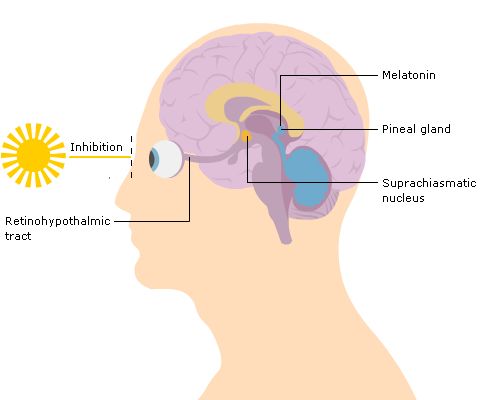Sleeping Part 1: Normal Physiology and Common Problems course


This session is designed to help you manage the common sleep problems that arise in young children. It covers the normal pattern of sleep and variation in children aged between 0 and 5 years, and also discusses the range of sleep problems that can occur along with a description of their impact on the family.
Learning objectives
By the end of this session you will be able to:
- Describe normal sleep and sleep behaviour in young children (0-5 years)
- Outline the physiological basis for sleep behaviour
- Recognise the factors that impair or promote the development of sleep routines in children
- Provide guidance and support for parents of children with common sleeping problems
The importance of good sleep patterns has both an anecdotal and a sound scientific background to support the relationship between sleep and learning and behaviour. Strong associations have been identified with mood, attention and concentration in adults and children.
Before commencing this session you should:
- Have an understanding of basic physiology and behaviour management in young children
Associate Professor Helen Heussler (MB BS FRACP MRCPCH DM) is a Developmental and Behavioural Paediatrician and a qualified Sleep Physician.
Her career has been spent in Queensland, RCH Melbourne, Victoria and the University of Nottingham. She currently works at the Mater Children’s Hospital in Child Development and in the Queensland Paediatric Sleep Disorders Unit.
Her interest is in supporting and investigating the sleep difficulties in children with developmental and behavioural issues. Current research interests include the sleep of children with Prader-Willi and Angelman syndrome, Smith-Magenis syndrome, Velo-cardio-facial syndrome and Charge syndrome, mitochondrial disorders and autism, as well as the pharmacokinetics of melatonin.

- End of Life Care | Specialist care | Tracheostomy ...
- Posted By eIntegrity Healthcare e-Learning
- Posted Date: 2025-01-10
- Location:Online
- This session covers basic knowledge required to keep patients safe if they have a tracheostomy and laryngectomy, including:<br><br>• Humidification<br>• Stoma care<br>• Securing the tube<br>• Maintenance: suction, inner tubes and c
- End of Life Care | Specialist care | Palliative ca...
- Posted By eIntegrity Healthcare e-Learning
- Posted Date: 2025-01-10
- Location:Online
- This session will discuss the features of some of the more common neuromuscular disorders, the physical and psychological issues which present with such disorders and the current practice for symptom control in palliative care.
- End of Life Care | Specialist care | Non-invasive ...
- Posted By eIntegrity Healthcare e-Learning
- Posted Date: 2025-01-10
- Location:Online
- Non-invasive ventilation (NIV) is an intervention which can improve both quality of life and survival for patients with motor neurone disease (MND). This session outlines the evidence base and practicalities of this important treatment option for patients
- End of Life Care | Specialist care | Intrathecal d...
- Posted By eIntegrity Healthcare e-Learning
- Posted Date: 2025-01-10
- Location:Online
- This session provides an overview of intrathecal drug delivery (ITDD) for the management of cancer pain. It aims to enhance the understanding of which patients may benefit from this approach and the principles which govern the safe use of ITDD systems. It
- End of Life Care | Specialist care | I'm not lovea...
- Posted By eIntegrity Healthcare e-Learning
- Posted Date: 2025-01-10
- Location:Online
- This session explores the concerns patients and their partners may have about intimacy and sex when approaching the end of life. It examines the challenges this raises for professionals and how most effectively to approach the topic. This session was revi








